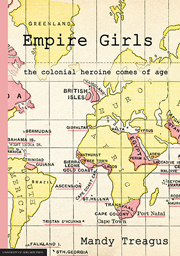3 - Sara Jeannette Duncan A Daughter of Today
Published online by Cambridge University Press: 05 September 2014
Summary
Introduction
When Sara Jeannette Duncan set out in A Daughter of Today to write a study of a female egoist, she had no real models in the heroines of Victorian fiction. While Jane Eyre and Dorothea Brooke may have longed for personal and romantic fulfilment, neither was sullied with the sin of complete self-absorption. Though the New Woman in 1890s fiction may have expressed discontent with the institution of marriage and with sexual double standards (shocking enough attitudes in themselves to many contemporary readers), few things transgressed the Victorian cult of femininity as surely as the depiction of a female egoist. Even feminists of the day justified their emancipation and education in terms of service and self-sacrifice, as they envisaged a healthier and more informed group of child bearers, taking the race to new heights. For example, Elizabeth Wolstenholme Elmy wrote in 1894:
The woman risks her life for the perpetuation and progress of the race. It is because women are resolved to be mothers in the highest, and no longer in the ignoblest sense of that term, that they now demand for themselves and for each other the fullest opportunity of self-development.
(Wolstenholme Elmy qtd in Bland 157)Becoming better mothers was also one of Mona Caird's arguments for the education of women, in her 1892 article, ‘A Defence of the So-Called “Wild Women”’.
- Type
- Chapter
- Information
- Empire GirlsThe Colonial Heroine Comes of Age, pp. 109 - 172Publisher: The University of Adelaide PressPrint publication year: 2014



